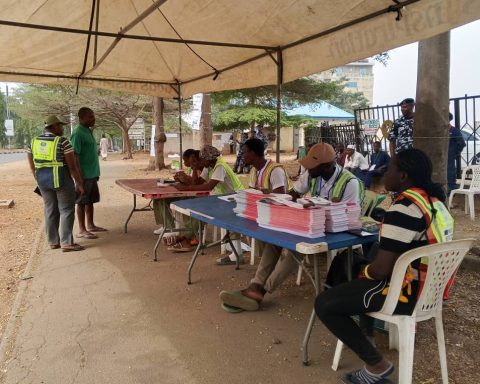Minister of State for Petroleum Resources (Oil), Heineken Lokpobiri, has stated that Nigeria’s crude oil remains one of the best in the world and called on Dangote Refinery and other domestic refiners to take advantage of the high quality instead of depending on imports.
Lokpobiri highlighted the advantages of processing Nigerian crude for both the local refiners and the country’s economy.
Join our WhatsApp ChannelThe minister made the call in his keynote address at the 4th edition of the PENGASSAN Energy and Labour Summit held in Abuja on Wednesday.
According to him, processing Nigerian crude would enable the refiners to maximise the by-products.
“It makes more economic sense for Nigerian refineries to process our own crude and blend it and maximise by-products rather than depend on imports. Our crude remains one of the best in the world,” Lokpobiri stated.
However, Dangote and other refineries have continued to raise concerns about the inability to get crude supply from domestic producers. Despite being Africa’s largest oil producer, Nigeria’s refineries have continued to rely on imported crude due to domestic supply challenges. As of June 2025, the Dangote Refinery sourced only 53 per cent of its crude from Nigerian producers, with the remaining 47 per cent imported from countries like the United States, Brazil, Angola, Ghana, and Equatorial Guinea. The inadequate domestic crude supply has often stemmed from theft, pipeline vandalism, and production shortfalls.
In July, Dangote announced plans to transition fully to Nigerian crude by the end of 2025, on the back of the expectation that, as long-term international supply contracts expire, domestic crude will become more available to local refiners.
Emphasising the quest to ramp up production, the petroleum minister warned that going forward, licences of marginal field operators who lack capacity will be revoked.
According to him, out of over 60 marginal field licences awarded, fewer than six had become operational.
He queried why nonperforming licence holders should retain it.
“Why should we extend licences to people who have shown no capacity? We need every available well to be productive. Those who cannot deliver will have their licences revoked,” he warned.
On the current production level, he said Nigeria will continue to maintain the production quota allocated to it by the Organisation of Petroleum Exporting Countries, while pushing for a higher allocation.
OPEC’s latest Monthly Oil Market Report, released last week, says Nigeria’s crude oil production averaged 1.507 million barrels per day (bpd) in July 2025, slightly above the group’s 1.5 million bpd quota to the West African country.
READ ALSO: Oil Production Data Disparity May Affect Nigeria’s Quest For Higher OPEC Quota – Expert
This is the second consecutive month and the third time this year that Nigeria’s crude oil production surpassed OPEC quota of 1.5 million bpd (following January and June).
While noting that Nigeria had recorded 1.8 million barrels per day when he assumed office, Lokpobiri said the target is to exceed two million barrels daily.
“However, let me assure you that we will not breach OPEC rules. Nigeria remains a committed member of the cartel.
“We will explain better to them that we are a committed member of OPEC. We have no ambition to exceed the OPEC quota. But we also have the ambition to improve our quota. Local, domestic, regional, and global employment,” the minister clarified.










